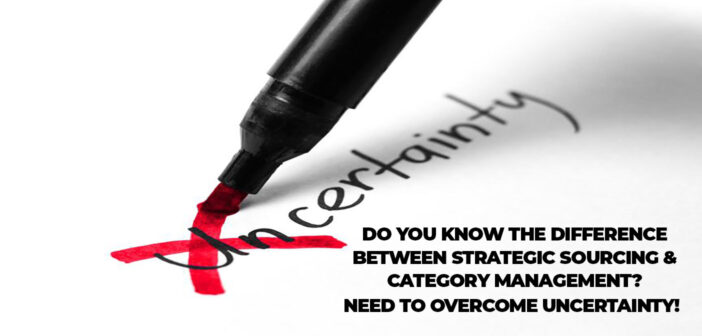Every day we have a new source of uncertainty and even crisis hitting us. We, as humans, are wired to fear the unknown and it can often be overwhelming and debilitating. Look at what COVID 19 has done to the entire world, and still is. Every one of the “events” I noted above have affected our Supply Chains which is why it is critical for all of us to be able to deal with uncertainty.
I read an article in HBR “How to Overcome Your Fear of the Unknown” which notes that possibility is the other side of uncertainty and can be VERY positive. The article notes, “Consider the achievements you’re most proud of, the moments that transformed your life, the relationships that make your life worth living. We’ll bet that they all happened after a period of uncertainty—one that probably felt stressful but that you nevertheless pushed through to accomplish something great.” There are several examples in history that we can learn from as well. “Our modern-day heroes all have a similar story. Rosa Parks faced great uncertainty when she refused to give up her seat, igniting the Montgomery bus boycott and paving the way for desegregation. Nearly everyone initially thought that Elon Musk and his team would fail when they set out to revolutionize electric vehicles and push the world toward a more environmentally friendly future. They couldn’t have achieved their breakthroughs if they had been afraid of uncertainty”.
Managing uncertainty and turning it into opportunities can be career enhancing. The authors offer four principles to help you do that.
- Reframe your Situation – When I read this particular principle it reminded me of our decision-making traps. When the same data is presented in the positive as opposed to the negative, the positive frame almost always wins – even though the data is exactly the same. Here is an example: If you are trying to convince someone to get surgery, you have great success noting that 90 people survive VS. 10 people will die.
- Prime yourself for New Risks – In order to take risks in certain parts of your life, many people form habits selectively to free up the mental capacity to deal with ambiguity in other parts of their life. Taking risks in small chunks can be helpful in increasing your tolerance for risk taking. Also, “knowing which risks you tolerate well can help you see where to push more boldly into the frontier, while knowing which you don’t will help you prepare so that you can approach them with more confidence”.
- Do Something – “Taking action is one of the most important parts of facing uncertainly, since you learn with each step you take”. Taking baby steps can be very effective because it allows you to take on small, manageable risks (like a pilot 😊) from which you can learn.
- Sustain Yourself – Be okay with failure and try to avoid getting down and frustrated. You need to realize that frustration is simply part of the process. When you fail, take a step back and ask yourself how you can learn from the failure. Hold tight to what really matters and that go a long way to build resiliency.
“Resilience—being able to take a blow and stay standing—is important. But we argue for something more: learning to transform uncertainty into opportunity. The only way for any of us to tap into new possibilities is through the gateway of the unknown. And it doesn’t have to be a painful process if you believe in your ability to navigate it.”
Let us know what you think and join in the conversation . . . . . . .


